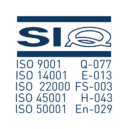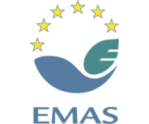Koper, 30th January 2009: The Supervisory Board has on its first regular session this year adopted the business plan for 2009. Despite the fact that the GDP of EU countries is decreasing, the GDP forecasts for Luka Koper’s main markets in Central and Eastern Europe are expected to perform better.
In 2009 we expect an 8% drop in maritime throughput compared to 2008. The most significant downturn is expected in vehicles throughput and in the general cargo segment, whilst less noteworthy decreases are expected as regards container freight. Operating revenues are accordingly forecast to be down by about two percent as a consequence. Hence one of Luka Koper’s major objectives in 2009 is to maintain its return on sales, which shall require efficient cost management given the expected downturn in revenue. Increased labour costs, primarily as a consequence of the implementation of a new collective agreement, will be mitigated through reductions in the costs of materials and services. In addition, a 25 percent increase in depreciation costs, which pertains to the increased infrastructure investments over the current year, as well as a rise in costs subsequent to the concession fee, should also be mentioned. Net profit may be a few percentage points down on this year, but is nonetheless again expected to surpass the 10 million euros threshold. Most importantly maintaining this level of performance allows Luka Koper to continue with its infrastructure investments, which are crucial to strengthening competitiveness and, in the company’s view, the most efficient answer to weathering any economic crises. Thus next year it is anticipated that 46 million Euros will be allocated to investments, including the pier infill at the container terminal quay extension, the purchase of new cranes capable to load vessels with up to 7.000 TEU capacity, as well as completion of phase two of construction work on the new vehicle storage warehouse. In addition, new facilities for alcohol handling are planned for a known customer. As to new projects beyond the allocations already decided upon, decisions shall be made on a case-by-case basis, depending on market conditions.
The investments will mainly be financed from Luka Koper’s own cash flow and European funding; indeed, this segment will be given particular attention, due to the fact that 34.5 million Euros are available to 2013 from the European Cohesion Fund for investments in port infrastructure in Slovenia. Considering present conditions on international financial markets ancillary sources of borrowing shall also be utilised as well some financial investments will be sold.
Luka Koper d.d.
Luka Koper, pristaniški in logistični sistem, d.d.
Vojkovo nabrežje 38
6501 Koper – Slovenija
+386 5 6656 100
portkoper@luka-kp.si
ID za DDV: SI89190033
MŠ: 5144353
Company
E-news subscription
In coexistence with the local community
The port is regulated with future generations in mind, who will live, create and grow up on the Slovenian coast.
The commitment of Luka Koper to sustainable development has ensured that future development will be friendly to the surrounding residents, the natural environment and employees.
The ‘Living with the port’ website aims for a transparent communication with the local community and to deliver all relevant information about the impact of the port on the area.




